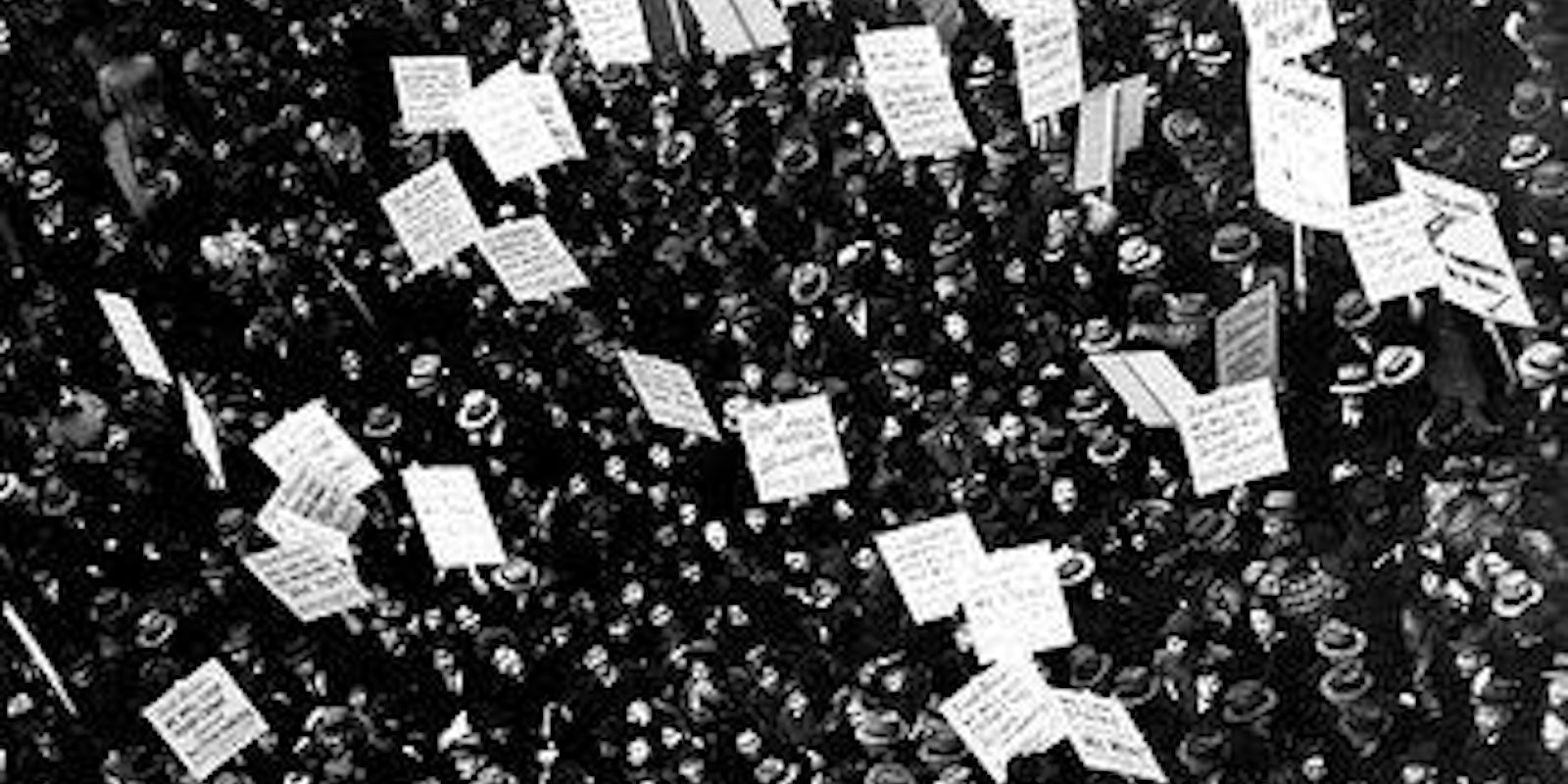Almost as quickly as a flash mob assembles and disperses, an Oregon bill that proposed making certain tweets illegal has vanished from sight.
State Senate Bill 1534 would have made the “use of electronic communication to solicit two or more persons to commit (a) specific crime at (a) specific time and location” illegal. It received a hearing at the Oregon legislature this week and was promptly killed by that state’s Senate Judiciary Committee.
State Sen. Doug Whitsett was the chief sponsor of the bill, which had 11 cosponsors and was introduced on Feb. 1. He had asked for it because he had heard stories from retailers about how they had fallen victim to flash mobs that had robbed their stores.
“If someone wants to bring a whole bunch of people to the Capitol to demonstrate, no problem,” Whitsett said, according to The Oregonian. “But if they’re solicited to come to the Capitol at 9 p.m. to firebomb the place, that’s a problem.”
The bill was tweeted about by @YourAnonNews and @OccupyWallStreetNYC, which claimed the bill would have made illegal to tweet details about the Occupy movement and meeting times. The main point of contention for critics is that the bill would have made online-organized protests illegal if it had been passed into law.
The so-called “flash mob” bill was also noted on Reddit, where redditor nerdyattorney pointed out that soliciting others to commit a crime is already illegal in Oregon and, as such, there was no need for this new bill.
At the hearing, the bill was largely opposed by other speakers.
“It would have prevented something as simple as the Selma Bridge protest,” Eric Coker, an Oregon State University graduate student, said at the hearing, according to Mother Jones, referring to a key incident in the civil-rights movement. “All those people, if they had heard about it through electronic communication, they would all have been subject to a Class C felony.”
What’s especially troubling about the bill is that it would have carried the same penalties for encouraging others to participate in criminal activity on Twitter and Facebook as actually carrying out the act.
That’s the kind of thing that could have gotten the Founding Fathers in trouble.
Photo by kheelcenter
